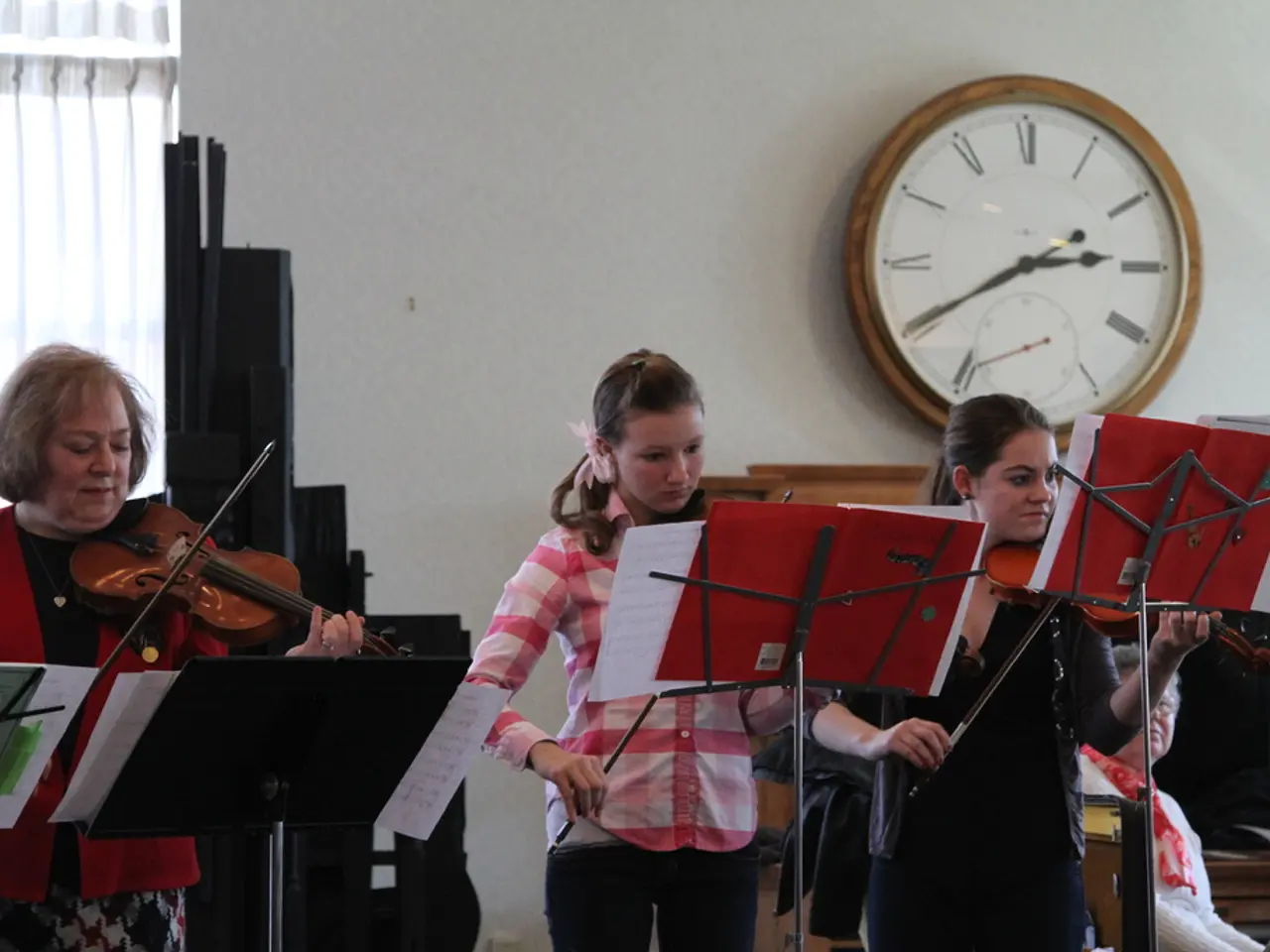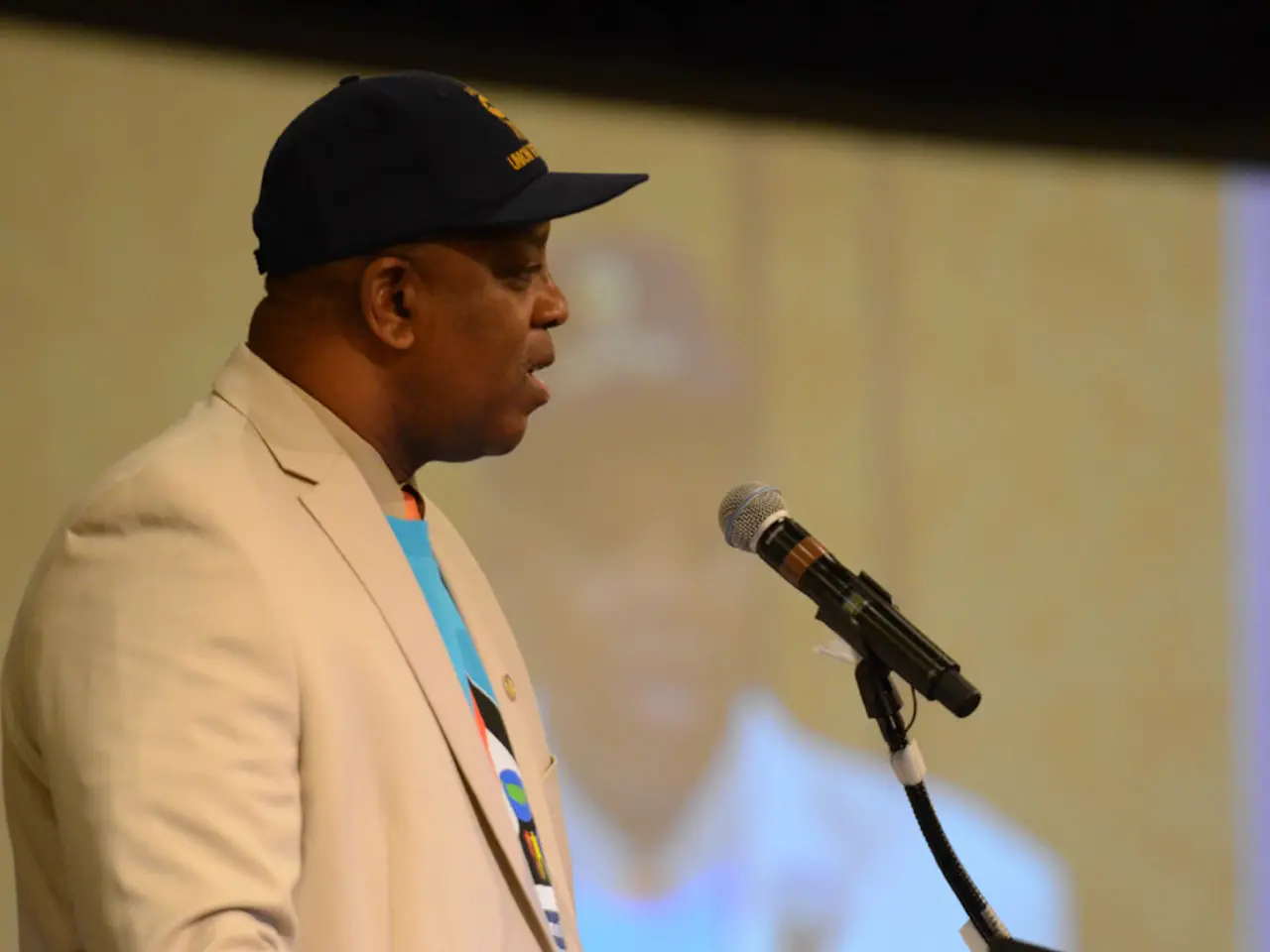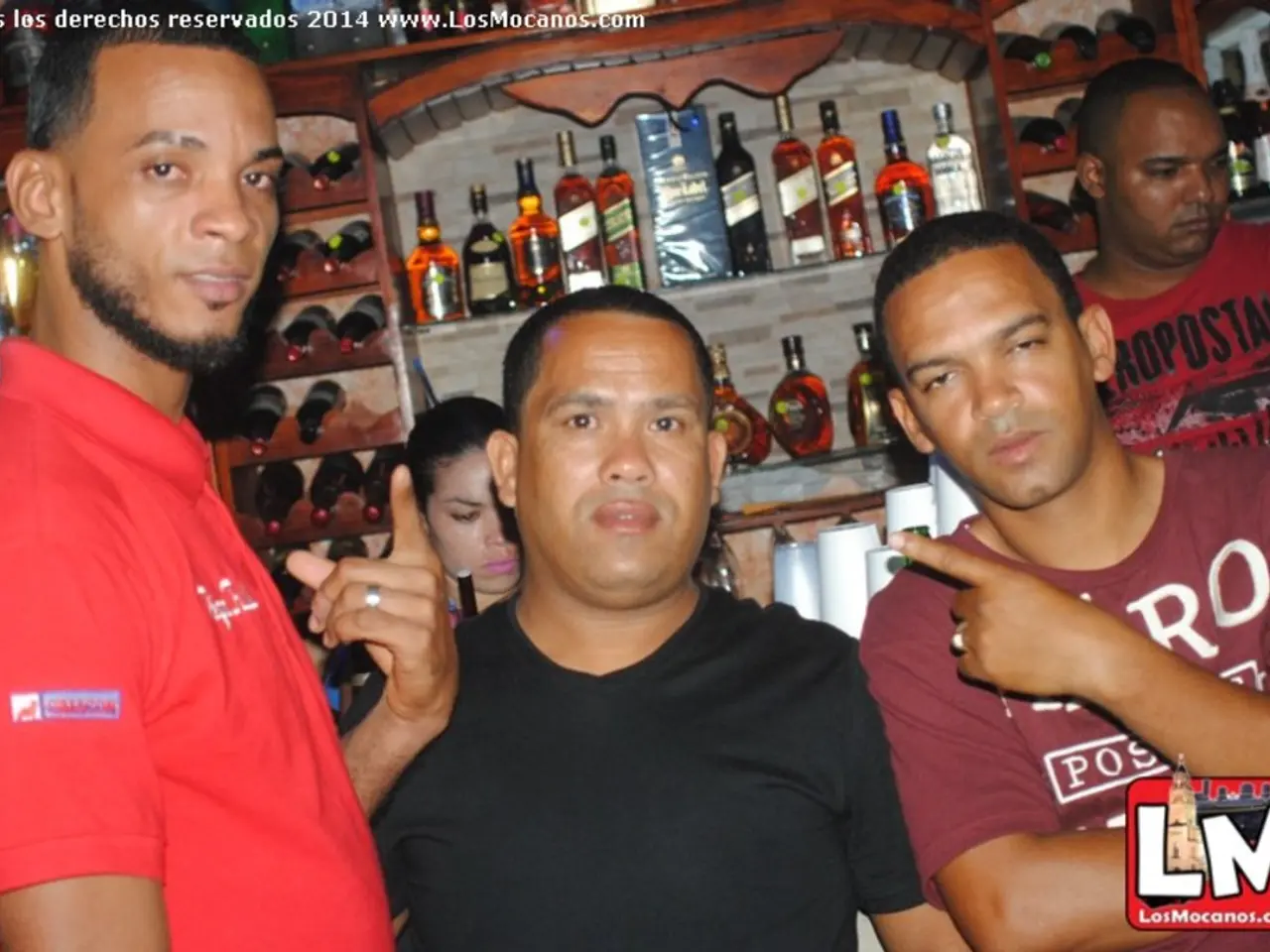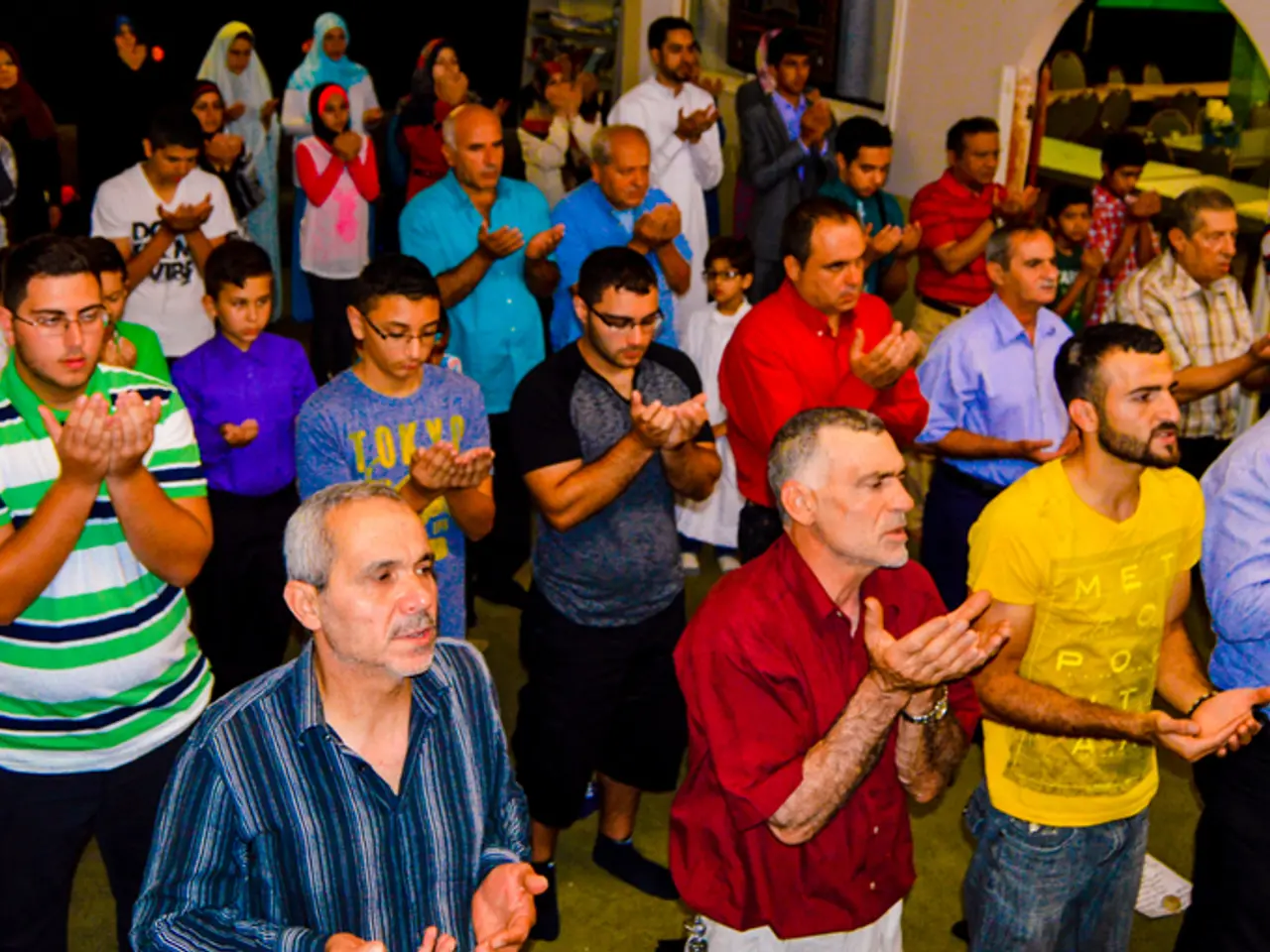Exploring Brooklyn's Scene: Shoko Nagai's Tokala: Crafting Myths and Imagining World Music
In the vibrant musical landscape of New York City, Shoko Nagai and Satoshi Takeishi stand out as pioneers, merging diverse musical traditions and rhythms to create a unique sound that resonates with contemporary audiences.
Nagai, an accomplished accordionist, has been a fixture in Eve Sicular's long-running klezmer group Isle of Klezbos for over a decade. Her husband, Takeishi, serves as the house percussionist at B'nai Jeshurun, a Manhattan synagogue that is an innovator in incorporating a band into its weekly Sabbath services.
Their musical journey is not just a fusion of sounds, but a narrative woven around mythical kingdoms and cultural storytelling. One such kingdom is Tokala, a conceptual setting created by Nagai, which serves as a fulcrum for her creative life. Tokala, a distant kingdom located in Central Asia, is the backdrop for a tale about five castaways, said to be from this land, who find themselves in a fairy tale kingdom located in the "center of the world."
Nagai's Tokala project is tailored to her specific musical interests and sensibilities, creating a musical map of the ancient world where Jews play an unspecified but prominently audible role. The music of Tokala veers away from the rhythmic abstraction of Vortex, embracing an orientation towards dance and holding improvisations within song forms or over rhythmic ostinatos.
The band's repertoire is as varied as the cultures they represent, including Okinawa pop songs, late Ottoman Turkish dance pieces, and Japanese folk songs arranged for Nagai's accordion and Takeishi's percussion. Guest artists in the band include klezmer clarinetist Zisl Slepovich, members of the popular brass band Slavic Soul Party, and Stomu Takeishi, Satoshi's brother, on bass guitar.
Nagai's work extends beyond Tokala, as she has contributed to Jewish cultural continuity by recontextualizing sounds from the "lost" past in projects relating to khazones (Yiddish, cantorial music). Her leadership role in ritual and life-cycle event performance has made her an important creative force in Jewish music, supporting the social life of the Jewish community.
In their musical explorations, Nagai and Takeishi subvert the popular abuse of genetics to support narratives of racial purity or the biological basis of normative cultural attributes. They see their embodied subjectivities as a means to transcend cultural divisions based in national identities.
Both Nagai and Takeishi came to New York separately from Japan in the 1990s to pursue paths as musicians. Their journey reflects the city's rich history of embracing and nurturing diverse musical talents, creating a musical ecology where Jewish music and musicians have played a special role in forging a sense of cultural "center."
While the mythological kingdom of Tokala may not have a widely recognized history, it serves as a testament to the power of imagination and cultural fusion in the creative works of Shoko Nagai and Satoshi Takeishi. Their music continues to challenge and inspire, bridging gaps between cultures and inviting listeners to embark on their own musical journeys.
Shoko Nagai's Tokala project, rooted in her unique musical interests and sensibilities, incorporates elements of music from various cultures, including Okinawa pop songs, late Ottoman Turkish dance pieces, and Japanese folk songs, offering a blend that resonates with contemporary audiences.
In the vibrant musical landscape of New York City, the band formed by Shoko Nagai and her husband, Satoshi Takeishi, creates a fusion of music that transcends cultural divisions, drawing inspiration from mythical kingdoms and cultural storytelling, such as the conceptual setting of Tokala.








